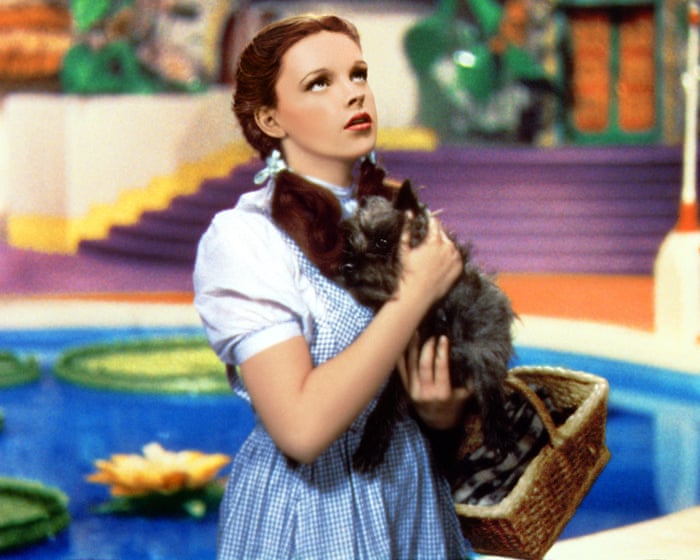School’s out, kids are free, and yet Hollywood animation is struggling at the box office this summer. Unlike last year, when Inside Out 2 and Despicable Me 4 dominated the top three (earning a combined $2.7 billion worldwide), this season might not see a single fully animated film crack the top 10. To make matters worse, Disney-Pixar’s original Elio was overshadowed by live-action remakes of Lilo & Stitch and How to Train Your Dragon—films that simply rehash old cartoons with bland new actors and CGI.
While younger audiences flock to those remakes—and even big hits like Superman and Jurassic World: Rebirth—Netflix somehow scored its biggest animated movie ever. KPop Demon Hunters, released the same weekend as Elio, follows a trio of women who juggle pop stardom with demon-slaying. It’s become a viral sensation, with its soundtrack soaring to #2 on the Billboard charts. When was the last time a Disney movie even tried to compete for “song of the summer”?
Superhero movies are back—but can DC and Marvel avoid past mistakes?
Animation should be a safe bet for budget-conscious streaming. After all, taking a family to the movies—plus snacks—can cost a small fortune, while streaming a new cartoon is far cheaper. Yet despite poaching talent from major studios, streamers have struggled with original content. Netflix’s The Sea Beast (co-directed by a Moana veteran) falls short of Disney’s standards, and Over the Moon (from longtime Disney animator Glen Keane) is downright disappointing. Even Skydance’s Spellbound, led by disgraced ex-Pixar head John Lasseter, barely made a splash last Thanksgiving. Most of Netflix’s top animated titles are older films from studios like DreamWorks and Illumination.
So why did KPop Demon Hunters break through?
For one, it wasn’t made in-house—Sony Pictures Animation, the studio behind the Spider-Verse films, produced it. While not as visually groundbreaking as Spider-Verse, KPop shares its dynamic, comic-book-inspired style, blending anime flair with bold pinks and purples. Sony originally planned a theatrical release for The Mitchells vs the Machines before the pandemic pushed it to Netflix—a move that clearly paid off.
The success of Netflix-Sony collaborations suggests that standing out—rather than mimicking Disney’s musical formulas or Pixar’s hidden worlds—might be the key. KPop Demon Hunters taps into current trends without feeling corporate. Meanwhile, Disney’s last original animated film, Wish, was a self-referential tribute to its own legacy, and their next big release is Zootopia 2—a sequel to a nearly decade-old hit. Other studios are just as sequel-obsessed; DreamWorks is capping off the summer with The Bad Guys 2.
Unlike those safe bets, KPop Demon Hunters isn’t a sequel or a comic adaptation—it feels fresh, connected to the real world, no matter how wild its fantasy action gets.By centering its story around a K-pop group, the film breaks away from the usual princess/talking animal/underdog kid formula. It focuses on young adults juggling serious responsibilities—whether it’s the intense world of pop stardom or battling demons Buffy-style—all while radiating an inspiring big-sister energy that younger viewers can look up to, much like they do with Disney princesses.
While American interest in K-pop may have cooled since its peak, the timing might actually work in the movie’s favor. Though KPop Demon Hunters was announced back in 2021 (when K-pop was at its height stateside), its blend of youthful appeal, mild scares, and adult themes makes it more accessible now than if it had arrived during the BTS frenzy. The film smartly repackages K-pop for a wider English-speaking audience—something the genre has been doing for years—drawing from fandom culture without depending on it entirely.
The movie also reimagines the K-pop industry as a fantastical world where the girls’ rigorous training stems from their own artistic drive, not corporate pressure. It’s a refreshing twist on the real-life grind of idol life.
Unsurprisingly, the film’s younger fans—many just discovering their own musical tastes—have propelled nine of its songs onto the Billboard Hot 100. This connection to pop culture lets the movie cast pop stars as both fearless heroes and cunning villains. (Case in point: the boy-band demons’ catchy Soda Pop is so infectious even the protagonists can’t resist it.) Pop music often blurs the line between irresistible and annoying—a dynamic the film plays with, even as it prioritizes themes of self-acceptance and friendship.
Much like superhero movies, KPop Demon Hunters will likely spawn endless sequels, proving once again that streaming animation is here to stay. But it shouldn’t just be about franchising. In an era dominated by sequels from Disney, Pixar, Illumination, and DreamWorks, this film is a reminder that kids crave fresh stories more than nostalgia-obsessed adults do. Families aren’t just waiting for Despicable Me 5—whether they realize it or not, they’re hungry for something with a little more pop.



